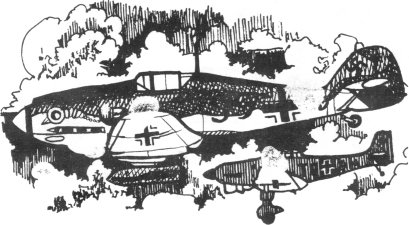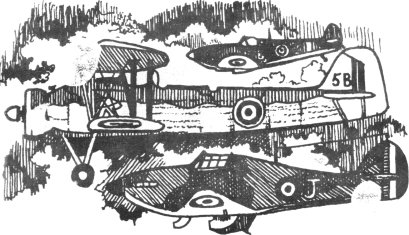|
"Wakey" 1892 - 1955
"Any fool can understand it; | |
|
Not so long ago, the advertising pundits announced the release of reproduction newspapers
originally published during the war, and a page was illustrated bearing one of the famous war
maps. (These war maps were a daily feature of the newspapers at that time and, for better or
worse, kept the public informed on the current state of the front line.) Sight of the war map
immediately triggered off memories of school, and of one master in particular - Mr Wakeford. Mr Wakeford (or Wakey, as he was affectionately nicknamed) taught at the school from 1931 until he died in 1955. During my period at the school (1939-1946), the term-to-term dictates of the syllabus, which had to be shuffled as a result of the war time shortage of lay teachers, caused Wakey to swap subjects with amazing deftness. As a result of all this, he became the faculty, in turn, for music, French, English, art and geography. This versatility held us in awe, but at the same time we were always impressed at the dynamic interest infused into whichever subject he taught. For example, for the still life subject of an art class, he would demonstrate the sophisticated (and still very exciting) curves of the Spitfire wing form; during French classes, he would keep us highly amused with examples of fractured French and Franglais - or a study in 'how-it-should-not-be-pronounced'. And the topography of North America during the geography lesson was nearly always illustrated by references to the latest western being shown at the newly-opened Granada cinema, the Wealdstone Odeon or the Harrow Dominion. As for music lessons, I wonder how many of my contempories can remember the stirring choral arrangements of Old Father Thames and Cherry Ripe? But geography was Mr Wakeford's main subject at all levels, and his medium for promoting interest in the subject was the war, the news it provoked and - of course - the daily war map. We all became conversant with the 49th parallel, the strategy and importance of the rivers and dams feeding the Ruhr Valley, the terrain of the Ardennes and the engineering of the Kiel Canal. We discovered new places like Peenemunde, and found that such towns as Dortmund, Bremen, Trieste and St Nazaire did have a place on the map. We also knew wherever the RAF had been the night before would somehow magically form the subject of the next day's lesson. The last time I spoke to Mr Wakeford, about a year before he died, we talked about the exciting goings on by Dr Werner von Braun at White Sands in the USA, and the fact that, in a little while, there would result an artificial earth satellite. 'You know', he said, 'I might be able to throw away my map and roller soon; it will all be there for everyone to see'. He was, of course, speaking about the outline of the continents as viewed from 200 miles up. I am sure that, if he were alive today, he would have the whole of the College up there on Mars while he gave his geography lesson. Just one old boy |
||
|
'Any fool can understand it; I can' T H Wakeford 1892-1955
Mr Wakeford's entry in our teachers' registers. |
|

